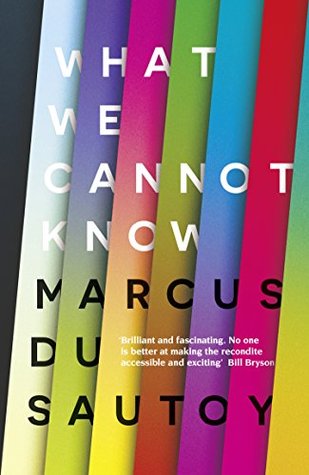More on this book
Community
Kindle Notes & Highlights
The distinguished physiologist Emil du Bois-Reymond had addressed the Berlin Academy in 1880, outlining what he regarded as seven riddles about nature that he believed were beyond knowledge, declaring them ‘ignoramus et ignorabimus’. Things we do not know and will never know. In the light of my attempt to understand what questions may be beyond knowledge, it is interesting to compare my list with the seven riddles presented by du Bois-Reymond: The ultimate nature of matter and force The origin of motion The origin of life The apparent teleological arrangements of nature The origins of simple
...more
André Weil summed up the devastating implications of Gödel’s work: ‘God exists since mathematics is consistent, and the Devil exists since we cannot prove it.’
Heisenberg, Gödel and Chomsky walk into a bar. Heisenberg looks around the bar and says, ‘Because there are three of us and because this is a bar, it must be a joke. But the question remains, is it funny or not?’ And Gödel thinks for a moment and says, ‘Well, because we’re inside the joke, we can’t tell whether it is funny. We’d have to be outside looking at it.’ And Chomsky looks at both of them and says, ‘Of course it’s funny. You’re just telling it wrong.’
Here is another of the mathematical jokes that burst out of our Christmas crackers: Teacher: What’s the biggest number? Student: Seventy-three million and twelve. Teacher: What about seventy-three million and thirteen? Student: Well, I was close!
Gettier created similar scenarios to challenge ‘justified true belief’. You are looking at a field and see what you believe is a cow. You infer that there is a cow in the field. Actually, there is a cow in the field, so the inference is true, but it can’t be seen because it is in a dip in the field. You are in possession of a true statement. It was based on a justifiable belief, and the thing you were looking at certainly looked exactly like a cow. But the fact that the statement you made is true does not imply knowledge.
Many philosophers of knowledge question how much we can ever really know about anything. The eighteenth-century Scottish philosopher David Hume identified one of the fundamental problems we’ve had with many of the questions I’ve been tackling: that of being stuck inside the system. If we are going to apply scientific methods to establish that we actually know something, we get into a loop because we are using scientific and logical arguments to prove that these methods are sound. It is impossible to assume an outside position.
Wittgenstein concluded his Tractatus Logico-Philosophicus with the famous line: ‘Whereof one cannot speak, thereof one must be silent.’ I think that is defeatist, as did Wittgenstein in later life. A better denouement would be: ‘Whereof we cannot know, there our imaginations can play.’ After all, it’s by telling stories that we began our journey to know what we know.
Stephen Hawking appreciates the danger of believing we know it all: ‘The greatest enemy of knowledge is not ignorance but the illusion of knowledge.’


